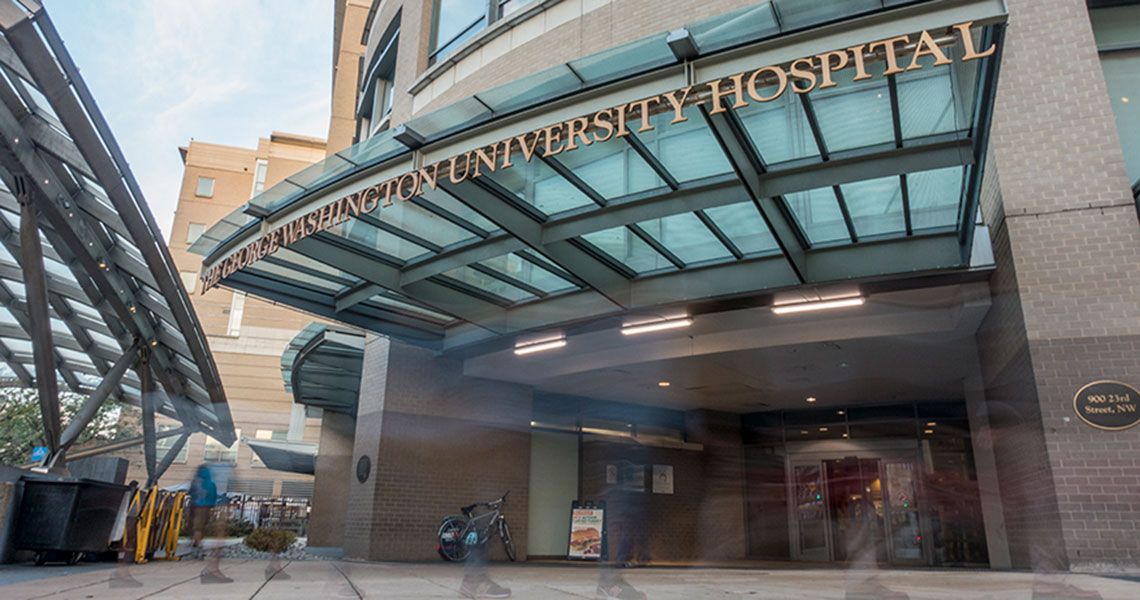George Washington University (GW) Hospital orthopedic medical resident Ryan Scully, M.D., and his colleagues noticed an alarming trend: Almost every week, patients were canceling elective orthopedic surgery appointments. What they didn’t know was why.
Now, as one of the winners of the GW Hospital Innovation Awards, Scully will be able to better answer that question.
Anyone working at the hospital — residents, physicians, nurses — can come up with a project and participate in the annual competition, says Jesse Pines, M.D., M.B.A., director of the Center for Healthcare Innovation and Policy Research (CHIPR) and professor of emergency medicine and health policy and management at the GW School of Medicine and Health Sciences (SMHS). CHIPR works with the hospital to both choose the winners and assist them with their projects, says Pines.
“As a hospital, we should be constantly striving to improve care for our patients, and this is one of the ways to do that,” he explains. “The primary goal is to make care safer, more patient-centered, and improve outcomes at the hospital; second, there are many changes in terms of the way health care is paid for and measured, and given this transformation and expectations on the part of [insurance providers] … there’s an increased need to have the capability to be innovative.”
This year, five winners were chosen, up from the three picked in previous years. That’s in part, Pines says, because of expanded interest in the program and the success in prior years.
The judges, made up of members of CHIPR and the hospital, look for projects that have a high likelihood of measureable clinical impact, ones that will lead to clearly defined outcomes, and ideas that will include interdisciplinary collaboration, according to Mark Zocchi, senior research associate at SMHS who works for CHIPR.
For Scully’s project, orthopedic residents will work alongside physician assistants and operating room business administrators, to look at how often orthopedic surgery cancelations happen and identify why patients don’t go forward with the operations. In the later stages, he says, they will take that information and enact measures to decrease cancelations.
“[Cancelations] have a profound impact on the patients, the hospital, and the operating room,” Scully says. “[T]hese are very disruptive events, and we want to look at why that happens and what we can do to fix it.”
This year’s crop of winners stood out because of the many different areas of care they touch and how they “are making a statement about the importance of multidisciplinary work,” says Pines.
David Burstein, M.D., an internal medicine resident, won for his project that encourages conversations between physicians and patients that will forge a better understanding of patients’ needs. Burstein created a list of 10 possible questions for his co-residents to ask patients, which will give them insight into the patient’s “personal history” — not just their medical history.
Knowing patients’ answers to questions such as “what are you most concerned about?” or “what matters most to you?” will help doctors make more personalized medical recommendations, and provide better care, Burstein says. He adds that with changes in health care — including the pace of care, increase of providers caring for each individual patient, and longer life expectancy despite serious illness — knowing the answers to these questions is more important than ever.
In addition to Scully’s and Burstein’s projects, the 2017 winning projects include:
- Establishing Multidisciplinary Patient Care Protocols for Emergency Critical Care by Murteza Shahkolahi, M.D., an emergency medicine resident
- Impact of Pharmacist and Microbiology Lab Intervention on Antibiotic Stewardship of Rapid Pathogen Identifiable Cases by resident Anne Chen, M.D., and Mia Barnes, Pharm.D., a clinical pharmacy specialist in infectious disease
- Effects of Perioperative Continuous Infusion of Lidocaine on Analgesia and Recovery after Spine Surgery by Gabriela Calhoun, M.D., an anesthesiology and critical care resident
Winners receive a small cash award from the hospital, additional project support for direct costs, and help from CHIPR to make their projects successful.



